I've been working on a function to handle a large Corpus. In it I use the doparallel package. Everything was working fine on 50 - 100k documents. I tested on 1M documents and received the above error.
However, when I go back down to a size of corpus I was working on previously, I still get the same error. I even tried going as low as 1k documents. The error is generated as soon as I hit enter when calling the function in the console.
Though I have 15 cores I tested this by going as low as just two cores - same issue.
I also tried restarting my session and clearing the environment with rm(list = ls())
Code:
clean_corpus <- function(corpus, n = 1000) { # n is length of each peice in parallel processing
# split the corpus into pieces for looping to get around memory issues with transformation
nr <- length(corpus)
pieces <- split(corpus, rep(1:ceiling(nr/n), each=n, length.out=nr))
lenp <- length(pieces)
rm(corpus) # save memory
# save pieces to rds files since not enough RAM
tmpfile <- tempfile()
for (i in seq_len(lenp)) {
saveRDS(pieces[[i]],
paste0(tmpfile, i, ".rds"))
}
rm(pieces) # save memory
# doparallel
registerDoParallel(cores = 14)
pieces <- foreach(i = seq_len(lenp)) %dopar% {
# update spelling
piece <- readRDS(paste0(tmpfile, i, ".rds"))
# spelling update based on lut
piece <- tm_map(piece, function(i) stringi_spelling_update(i, spellingdoc))
# regular transformations
piece <- tm_map(piece, removeNumbers)
piece <- tm_map(piece, content_transformer(removePunctuation), preserve_intra_word_dashes = T)
piece <- tm_map(piece, content_transformer(function(x, ...)
qdap::rm_stopwords(x, stopwords = tm::stopwords("english"), separate = F)))
saveRDS(piece, paste0(tmpfile, i, ".rds"))
return(1) # hack to get dopar to forget the piece to save memory since now saved to rds
}
# combine the pieces back into one corpus
corpus <- list()
corpus <- foreach(i = seq_len(lenp)) %do% {
corpus[[i]] <- readRDS(paste0(tmpfile, i, ".rds"))
}
corpus <- do.call(function(...) c(..., recursive = TRUE), corpus)
return(corpus)
} # end clean_corpus function
Then when I run it, even on a small corpus:
> mini_cleancorp <- clean_corpus(mini_corpus, n = 1000) # mini_corpus is a 10k corpus
Show Traceback
Rerun with Debug
Error in mcfork() :
unable to fork, possible reason: Cannot allocate memory
Here are some screen shots of top in the terminal just before I try to run the function.

